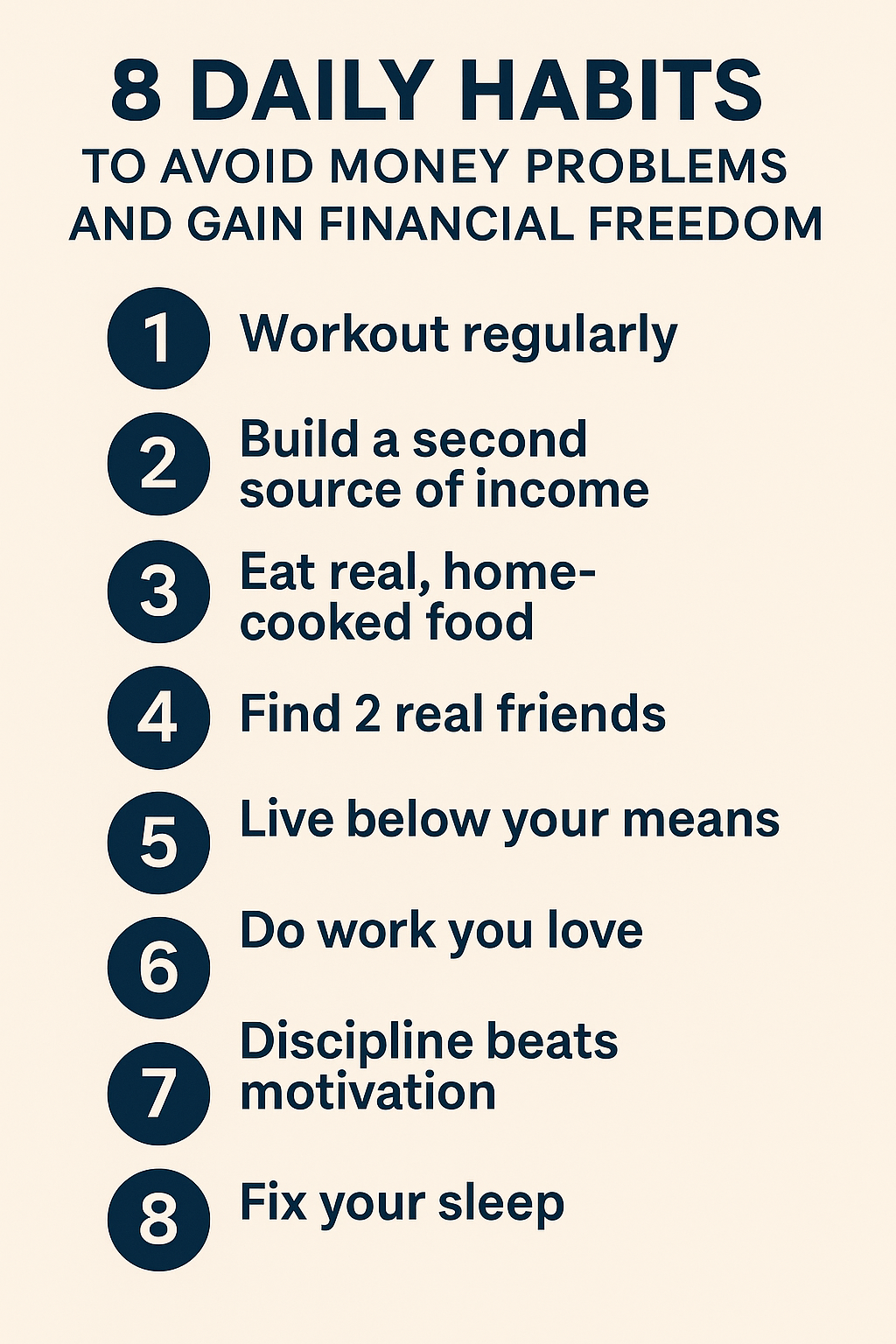Most money problems don’t come from bad luck — they come from daily habits. By adjusting the way we live, work, and manage our health, we can avoid 99% of the financial stress that adults face. These simple habits don’t just improve your lifestyle, they also set the foundation for financial freedom.

1. Workout Regularly – A Healthy Body Saves Money
- Regular exercise reduces medical bills in the long run.
- Good health = fewer sick days = better productivity = stronger income stability.
- Even low-cost habits (walking, home workouts) protect your finances.
2. Build a Second Source of Income
- Relying on one job is risky.
- Side hustles (freelancing, small online shops, tutoring, blogging) provide a financial safety net.
- Even an extra £200 a month can pay bills, reduce debt, or grow savings.
💡 Use our Simple Budget Calculator to plan where your side hustle income goes — savings, investments, or debt repayment.
3. Eat Real, Home-Cooked Food
- Takeaways and processed food drain your budget.
- Cooking at home costs less, keeps you healthier, and teaches discipline.
- Savings example: Spending £8/day on lunch = £240/month. Cooking at home might cost £60–£80. That’s £2,000+ saved per year!
4. Find 2 Real Friends (Cut Out Expensive Social Pressure)
- Peer pressure can lead to overspending (holidays, eating out, luxury shopping).
- Real friends respect your financial boundaries.
- Surround yourself with people who encourage saving and smart money choices.
5. Live Below Your Means
- The golden rule of financial freedom.
- Earn £2,000/month? Don’t spend £2,200.
- Create a simple budget where your expenses are always less than your income.
- Our calculator makes this simple: Try it here.
6. Do Work You Love
- Loving your work improves performance and career growth.
- Passion leads to new opportunities and extra income streams.
- Money management becomes easier when your job doesn’t feel like punishment.
7. Discipline Beats Motivation
- Motivation is temporary; discipline is permanent.
- Financial discipline = paying yourself first (savings), paying bills on time, saying no to debt.
- Use automatic transfers to savings accounts or investments.
8. Fix Your Sleep (Yes, It Affects Your Wallet Too)
- Poor sleep lowers focus → lower performance → lower income.
- Tiredness often causes impulse spending (takeaways, unnecessary shopping).
- A good sleep routine is free, and it protects both your health and your bank balance.
Conclusion
Financial freedom isn’t only about income — it’s about daily choices. By applying these eight simple habits, you’ll avoid unnecessary problems, save money, and create space for long-term wealth.
👉 Start with one habit today, and use the Simple Budget Calculator to see the difference in your monthly balance.
